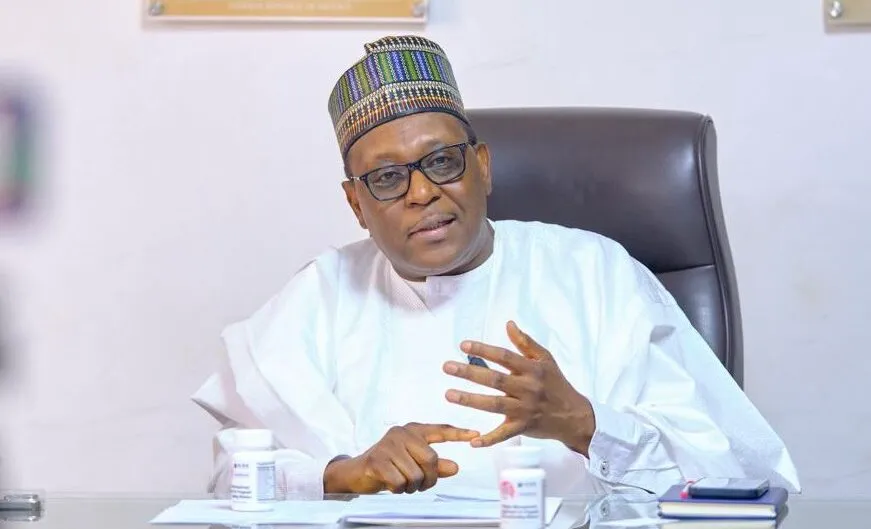By Muhammad Amaan
The recent withdrawal of United States aid for malaria control in Nigeria has raised concerns among health experts, who warn that unless the Federal Government intervenes urgently, the country risks losing the progress made in combating the disease.
Since 2011, the U.S. President’s Malaria Initiative (PMI), implemented by the United States Agency for International Development (USAID), has been instrumental in Nigeria’s fight against malaria, contributing $914 million, including $73 million in 2023 alone.
Over the past year, PMI-funded programmes delivered 13.4 million bed nets, six million doses of fast-acting malaria medicines, and 11.8 million rapid diagnostic tests across clinics and communities. Also, over 7,200 health workers were trained in 2023 to enhance malaria detection, treatment, and community care.
Findings by The Guardian Newspaper revealed that PMI-supported interventions cover public health facilities in 11 states: Nasarawa, Plateau, Benue, Zamfara, Kebbi, Sokoto, Bauchi, Akwa Ibom, Cross River, Oyo, and Ebonyi. These include the distribution of bed nets, seasonal malaria prevention measures, diagnosis, and treatment.
Nigeria bears the highest global burden of malaria, accounting for nearly 27 per cent of cases and 30.9 per cent of deaths in 2023, according to the World Health Organisation (WHO).
The country also accounts for nearly 40 per cent of global malaria deaths among children under five, recording around 55 million cases and 90,000 deaths yearly.
Nigeria has been at the forefront of implementing data-driven strategies under the High Burden to High Impact (HBHI) approach, prioritising high-burden states for support from both PMI and the Global Fund.
However, with the recent funding challenges, malaria rates in 12 states and the Federal Capital Territory have reportedly begun to rise.
While PMI interventions support 11 states, an additional 13 states receive support from the Global Fund. Moreover, 12 states and the FCT have recently accessed support from the World Bank and Islamic Development Bank.
AID cuts will severely undermine malaria control efforts in Nigeria, the Executive Director of the Civil Society Legislative Advocacy Centre (CISLAC), Mr Auwal Musa Rafsanjani, warned.
Speaking with The Guardian, Mr Rafsanjani noted that the reduction in funding will affect key malaria interventions, including the distribution of insecticide-treated nets, indoor residual spraying, and access to effective treatment, especially in vulnerable communities.
He stated that the funding gap would worsen Nigeria’s already dire malaria situation, where the disease remains a leading cause of morbidity and mortality.
Mr Rafsanjani lamented that the high cost of malaria drugs continues to pose a significant challenge for many Nigerians, pushing families deeper into poverty and hindering efforts to curb the disease.
He warned that without urgent intervention, the high cost of treatment would delay care, increase severe illness, and perpetuate malaria transmission across communities.
“In Nigeria, where many people live below the poverty line, the cost of effective treatment can be prohibitively expensive, leading to delayed or inadequate treatment. This not only puts individuals at risk of severe illness and death but also contributes to ongoing malaria transmission in the communities.
“The 2030 malaria elimination target is ambitious, and Nigeria faces significant challenges in achieving it. The aid cuts, inadequate funding, and high cost of malaria drugs all pose threats to progress,” he said.
He stressed the need for increased access to affordable and effective malaria treatment through subsidies, price controls, and public-private partnerships, especially for the most vulnerable.
While acknowledging efforts by the government and donor agencies to fund malaria elimination initiatives, Rafsanjani expressed concern over the mismanagement and inefficiencies that have plagued malaria control programmes.
He noted that weak institutional capacity, lack of coordination, and corruption, including the misuse and embezzlement of funds, continue to hinder progress.
“Effective utilisation of funds requires strong coordination, transparency, and accountability. Unfortunately, there have been instances of mismanagement and inefficiencies in the use of funds, which have hindered the progress of malaria control efforts. Weak institutional capacity within government agencies and implementing partners can lead to inefficient use of resources,” he noted.
Rafsanjani called for urgent reforms to strengthen institutional capacity, enhance transparency, and promote good governance in order to ensure that available funds are used efficiently.
He maintained that by improving accountability and building the capacity of implementing partners, Nigeria can make meaningful progress towards malaria elimination and reduce the burden of the disease on its citizens.




